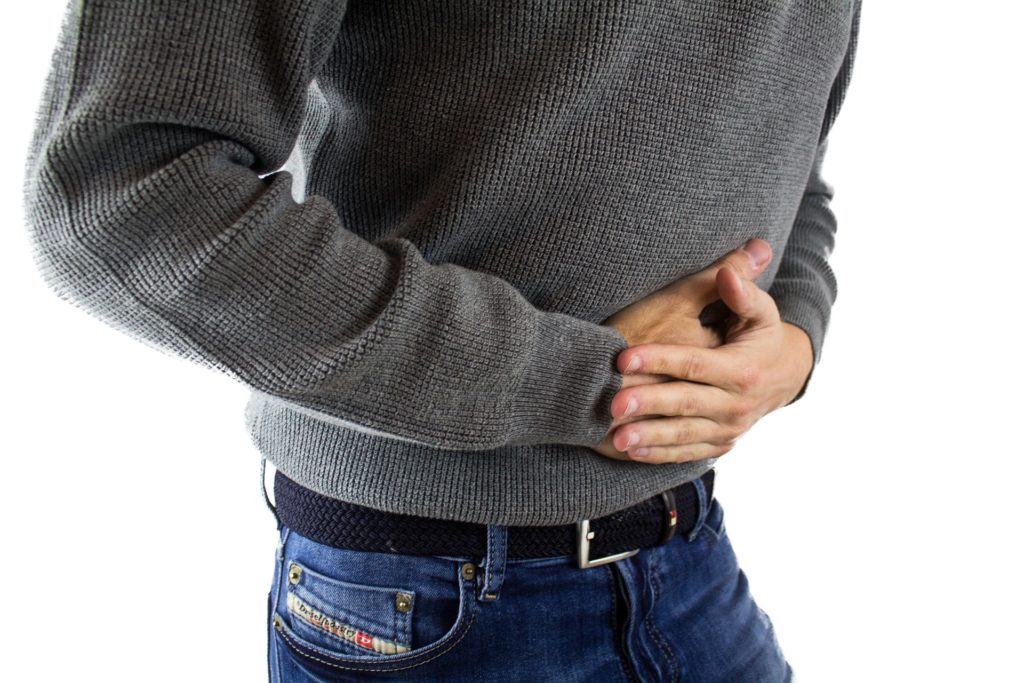When travelling by air, sea, or land you are exposed to many new sights, foods, people, and places, and this can pose health risks, such as:

- Food-borne illnesses,
- Traveller’s diarrhea, and
- Airborne illnesses
I will touch on these three routes of infection and the health tips you can take as precautions and the tools you can use to prepare your immunity, and body while travelling the world. We can’t always control the microbes that surround us, so it’s best to be prepared for travel and armed with an arsenal of natural immune boosters.
As a digestive-health focused naturopathic doctor, I see patients who have severe gastrointestinal distress related to their travel history. Conditions such as irritable bowel syndrome (IBS), small intestine bacterial overgrowth (SIBO) and bacterial dysbiosis that I work with, which are related to travel and microbial exposure.
After exposure to a variety of new (To you) bacteria, parasites or viruses the gastrointestinal system is afflicted with symptoms of:

- pain
- gas
- bloating
- diarrhea
- constipation
- fatigue
- loose/soft stools
- undigested foods in stools
Here are my Top 7 Health Recommendations to prep your body for travel related illnesses, especially those affecting the gastrointestinal system.

Top 7 Health Recommendations:
- Shelf stable probiotic capsules
- Activated charcoal powder
- Liquid anti-microbial herbs such as goldenseal, pau d’arco, oregon grape, or echinacea
- Saccromyces boulardii capsules
- Vitamin C powder packets
- Cod liver oil capsules
- Hand washing and hygiene – travel soap, water purification products, hand sanitizers
- Food-borne Illness
Food-borne illnesses, or “Food poisoning”, are a major cause of concern especially in areas of the world where safe food preparation practises, hygiene and sanitation may lack. Food that is undercooked, spoiled or ill-prepared might be contaminated with pathogenic bacteria, such as E.coli, Salmonella spp., Listeria spp. Pathogenic bacteria make toxins that cause a lot of distress and inflammation to the digestive system and cause severe episodes of vomiting and diarrhea.
Although the symptoms are unpleasant, it is best to let food poisoning run its course rather than using anti-diarrheal medications (Immodium, for example), as this is your bodies way of eliminating (purging) the bacterial toxins. An antibiotic treatment may be needed and may be prescribed by a medical doctor in advance from a travel clinic.
Food-borne Illness Health Tools:
Multistrain probiotic (shelf stable)
Hand washing and hygiene
Avoid raw, undercooked foods, and/or rare meats
Activated charcoal
Anti-microbial herbs
Shelf stable multi-strain probiotic capsules
A probiotic that has high content of bifidobacterium and lactobacillus species, with multiple strains of each should be started 2-3 weeks before travel, and continued throughout the duration of travel. Probiotics supply “good” bacteria into the intestines, and improves intestinal immunity making your intestines (and immune system) more resilient to foreign invaders. About 70% of your immune system resides within the digestive tract, so naturally probiotics are a great tool. Additionally probiotics help to reduce any lingering symptoms of diarrhea, constipation or nausea.
Hand washing and hygiene
This is imperative to safe travel. Cultural variations in hygiene practises are common. In some countries hand washing is not mandatory to employees, and in some cases clean running water access is very limited. These factors increase likelihood of exposure and unfortunately may not been avoidable. Only consume food from establishments that you can trust are using safe hygiene practises, even if that means a few more dollars for the meal. Bring snacks from home, such as protein bars, energy or granola bars, dehydrated fruits or vegetable snacks, or even in some cases water purification tablets or products may be necessary.
Always be sure to wash your own hands thoroughly before each meal, and before touching mouth, nose, eyes or open wounds.
Consuming only well cooked foods, and avoiding raw fruits and vegetables and/or rare meats, is also a good idea to help reduce your exposure to pathogenic bacteria.
Activated charcoal
Activated charcoal powder binds up organisms in the gastrointestinal tract assisting in elimination. This is a good intervention to be used for a short time only, as charcoal does not discriminate between the good, and the bad substances; it can bind up good substances, such as minerals, medications, good flora/bacteria and vitamins. Only use activated charcoal away from medications, foods, and supplements, for safe consumption.
Anti-microbial Herbs
Anti-microbial herbs can be used during and after food-borne illnesses to help the body recover and to reduce any further effect from lingering bacteria, parasites, or microbes in the gastrointestinal tract. I like liquids for convenience of dosing, and also allowing the plants to get into the mouth, and pharyngeal area, rather than concentrating in the digestive system as with capsules. Some examples are pau d’arco, goldenseal, echinacea, oregon grape, artemisia. These plants should NEVER be taken long term or in high doses as they can be very toxic (they do kill living organisms, which is their purpose). Do not use with children or those with pre-existing liver or kidney conditions without speaking to a health professional, such as a naturopath or nutritionist.
2. Traveller’s Diarrhea
A common concern for travellers. This occurs because the body is exposed to many new bacteria and viruses than what you are used to in your home environment. Warmer climates are particularly concerning as they have a more ideal climate for microbial growth (than colder/arctic climates). Bacteria, fungi, and viruses can all cause problems for travellers, and symptoms can be bloating, gas, diarrhea, abdominal pain and fatigue.
Traveller’s Diarrhea Health Tools:
Saccromyces boulardii
Travellers probiotics – shelf stable
Saccromyces boulardii
S. boulardii is a microbial organism that has received much research attention for its positive results for traveller’s diarrhea. This is a yeast that increases intestinal immunity. This means that saccromyces helps to get your immune system primed for fighting the new microbes you can anticipate in a new area of the world. It helps reduce diarrhea and shortens duration of sickness.
Traveller’s Probiotics – Shelf Stable
Taking a probiotic before and during travel reduces the likelihood of traveller’s diarrea, espeically in combination with S. Boulardii (above). You should plan to take a shelf-stable probiotic with you, so that the bacterial content of the capsules (or powder) does not degrade without refrigeration, as some hotels, and accomodations may not have access to refrigeration. Plan to start taking the supplement at least 2 weeks before travel, and throughout the entire trip.
3. Airborne Illnesses
Some airborne illness cause gastrointestinal concerns too. Most commonly, colds, influenza, pertussis (whooping cough), Legionnaire’s disease, and tuberculosis. Additionally, measles, diptheria, meningitis are airborne diseases, but do not often affect the gastrointestinal system. We cannot control our environment, but we can be prepared. Vaccination against many of these illnesses is widely available and is encouraged in Ontario.
If you experience a worsening of symptoms, or bloody cough, pain, rashes, or fever you should always see a medical professional, as you may have contracted a serious disease that requires medical treatment (such as antibiotics, vaccination, or anti-viral medication in some cases). If you are elderly, immunocompromised, or travelling with the very young it is a good idea to visit a travel medical clinic to be advised about your risks, and to get medications needed for endemic regions.
Crowded places, endemic regions, planes, trains, and cruise ships increase chances of exposure to airborne illnesses, as you are in close proximity to your neighbours; people from all over the world may be right beside you and not everyone is vaccinated against infectious diseases.
Airborne Illness Health Tools:
Cod liver capsules
Traveller’s Probiotics – shelf stable
Vitamin C powder packs
Anti-microbial herbal tincture
Cod liver oil capsules
Cod liver oil contains vitamin A and vitamin D, both of which are essential for the function of our immune system. Cod liver oil is the only source of vitamin D from food, the other way to get vitamin D is sunlight, but here’s the thing: sunlight depresses immunity (short term). So plan on boosting your immune system before heading into the tropics, for better immunity. Starting a routine of cod liver oil before travel can be very helpful for ensuring your immune system is primed and healthy. Capsules are a convenient way to consume cod liver oil while on the go, but liquids may be more cost effective. Keep refrigerated if possible.
Traveller’s Probiotics
A shelf stable probiotic can be taken with you on holiday to continue to offer good bacteria into the intestines to boost immunity. Taking a multi-strain variety also ensures many beneficial species are introduced into the intestines, offering a better benefit to the immune system. Bacteria (Probiotics) also colonize the throat, nose, sinuses, and our respiratory system. Ensuring respiratory health includes healthy bacterial balance, which begins with probiotics and clean air, free of toxins (cigarette smoke, mold spores and mycotoxins, chemical vapours, volatile organic compounds VOCs, etc). Be sure to start these at least 1 month in advance of travel.
Vitamin C Powder Packets
Most companies are making vitamin C powder packs in 1000mg per pack, which can conveniently be added to water, and consumed throughout the day, or all at once, if needed. Taking 1000mg is quite safe and is a known immune stimulator. Remember to ensure water is safe for drinking before adding your powder. Take vitamin C for as long as the cold lasts, at least one pack per day, but up to three is best.
Anti-microbial Herbs
Most common colds and flu are caused by viruses. Viruses replicate quickly, and are sneaky bugs. We want to help our immune system fight, so adding an anti-microbial plant based product may speed up the recovery and reduce symptoms of common colds and flu. Remember that some bacterial infections may require an antibiotic prescription, in which case it is best to stop taking anti-microbial herbal remedies.
Enjoy this travel season safely, and don’t forget to protect your gut health these these Top 7 Health Recommendations for Gut Health Savvy Travel.
Join my email newsletter here to get up to date health information, tips, recipes and access to resources!
Dr. Kristin Spark, BSc, B.Nat, CISSN, Naturopathic Doctor sees patients in Uptown Waterloo and treats patients virtually in Ontario. For information about appointments, or to book your appointment, click here
The content provided is not intended as health or medical advice, diagnosis, treatment or a prescription. Always seek the advice of your medical provider with any questions you have regarding medical conditions. Dr. Kristin Spark, Naturopathic Doctor is released from any liabilities resulting from the use of information contained here.

 At the root of preventative healthcare, is education. Let me help you stay informed to find your highest health potential. Information provided on this website is for educational and promotional purposes only, and does not serve as, or replace, medical recommendations, treatments or prescriptions.
At the root of preventative healthcare, is education. Let me help you stay informed to find your highest health potential. Information provided on this website is for educational and promotional purposes only, and does not serve as, or replace, medical recommendations, treatments or prescriptions.